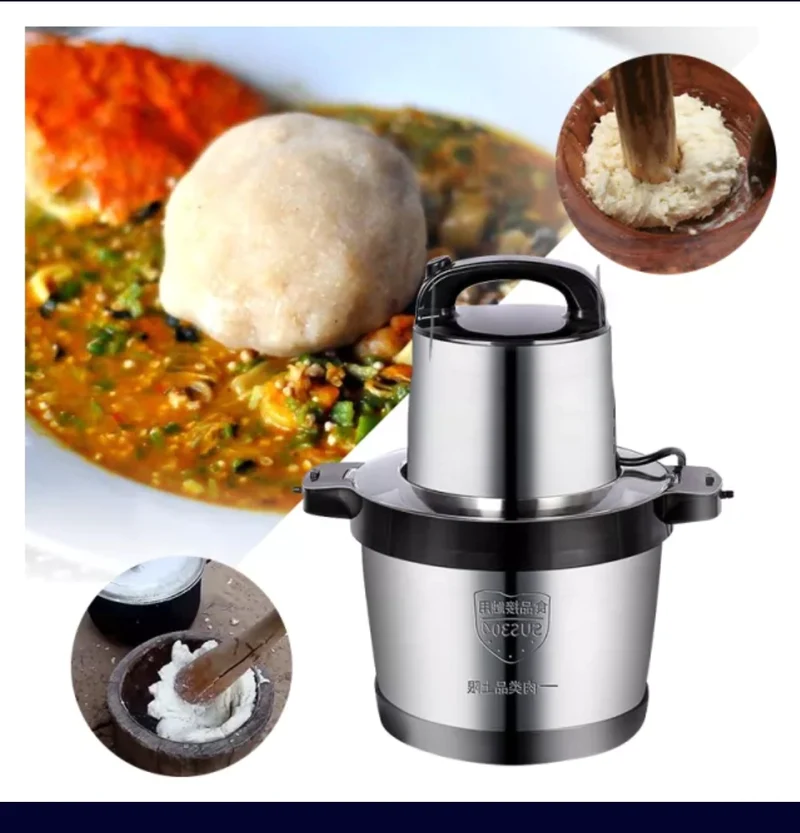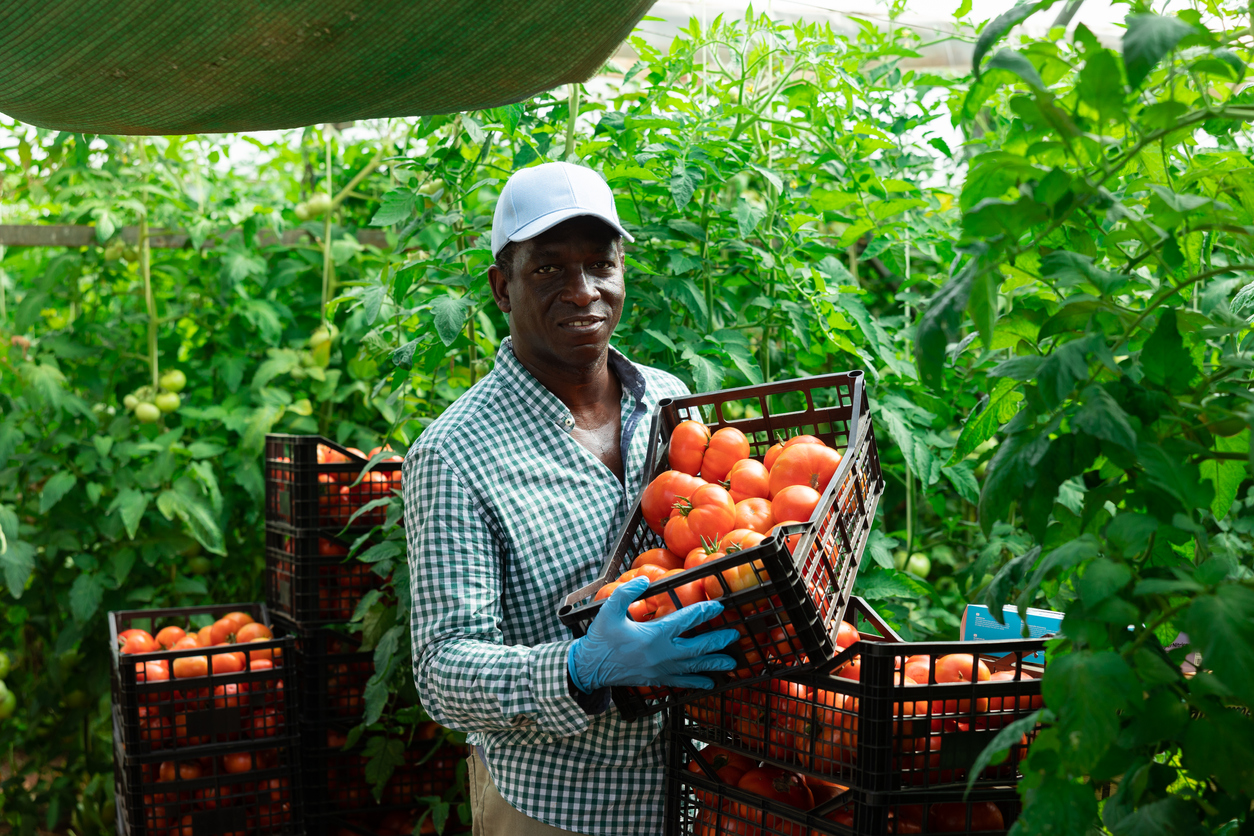Behind the Scenes: A Look at How Yam Pounders Make Nigeria’s Favorite Dishes
Behind the Scenes: A Look at How Yam Pounders Make Nigeria’s Favorite Dishes
Have you ever wondered what goes into making some of Nigeria’s favorite dishes? From fufu to tuwo masara, poundo yam to jollof rice, there is a lot of hard work that goes into crafting the delicious meals that Nigerians know and love. Behind the scenes of the country’s kitchens are the yam pounders, whose skills and dedication ensure that each dish is made to perfection. In this article, we will take a closer look at the traditional yam pounding process and explore the importance of this craft in Nigerian cuisine. Read on to learn more about the skill and artistry that goes into making these delicious dishes!
Overview of the yam pounding process
The process of making yam is known as gari-making, and it is a very labour-intensive process. The first step is to clean and peel the yams, removing any parts that have gone bad. The yams are then shredded, and the shredded yam is then put into a large wooden device known as a yam grinder. The yam grinder consists of a drum with wooden spikes that are used to crush the yam. After being ground, the yam is placed in a large sack where it is left to ferment for up to three days. After this process, the yam is ready to be cooked. During the cooking process, the yam is placed in a container with water and other spices and then brought to a boil. After the yam has been cooked, it is placed into a large wooden device that resembles a long trough. This device is known as the yam pounder. The yam pounder is used to break up the cooked yam into smaller pieces. At this point, the yam can be served as it is, or it can be used as an ingredient in other dishes, such as fufu and jollof rice.
The importance of yam pounding in Nigerian cuisine
Yam is an important staple food in Nigeria, and yam pounders play an integral role in the cuisine by preparing it for use in a variety of dishes. The most well-known dish that uses pounded yam is fufu, a staple food in West Africa. Fufu is made by mixing the pounded yam with water and then using the mixture to mould the dough-like substance that forms the base of the meal. This consistency and method of preparation are similar to how mashed potatoes are prepared. In addition to fufu, pounded yam is also used to make other popular Nigerian dishes, such as tuwo masara, jollof rice, and brochettes.
The yam pounders: a closer look at the people behind the craft
Yam pounders are a unique and important part of Nigerian cuisine, but they are often overlooked. The people who pound yam are known as alubias in the Igbo language. The alubia is one of the few traditions from the olden days that is still practised in Nigeria. Although the yam pounding process has been modernized, some of the basic steps remain the same. Traditionally, the alubias would pound yam on the ground, but today, the pounding is done with the aid of a machine. The yam pounder has also been modified to be larger and more efficient. The alubia is typically a young boy, and sometimes girls, who pound yam. In some parts of Nigeria, girls are also allowed to pound yam, but in other parts, the profession is reserved only for boys. Despite the adult-oriented nature of the job, the alubias are typically paid very little, if anything, for their services.
The impact of yam pounding on local communities
The yam pounders have brought many benefits to the communities where they work. First, the practice of yam pounding has helped to preserve local culinary traditions. The methods used to prepare the yam have also changed throughout time. For example, pounded yam was once used as a method of exchange, similar to money, in certain communities in Nigeria. In modern times, however, the yam pounders are responsible for providing a service to the community. The pounded yam is used as the main ingredient for fufu, tuwo masara, and jollof rice. These dishes are a crucial part of the Nigerian diet, and yam pounders help ensure that they are prepared correctly. The yam pounders also provide a source of income for families and villages. In most cases, villagers will pool their money together and hire an alubia to come and pound yam for the group. This practice creates a steady stream of income for the alubias.
Yam pounding as an art form
Pounding yam used to be a necessity, but it is now more of a tradition. In certain parts of Nigeria, people still pound yam on the ground, and the process has become a way of life. For some people, however, the art of yam pounding has become more than just a means of survival. It has become an art form. In cities such as Lagos, the yam pounding process has become a form of entertainment. Groups of people travel from city to city to compete in yam pounding competitions. These competitions bring awareness to the yam pounding process and help to preserve the traditional methods of preparing the yam.
Yam pounding as a source of income
As mentioned earlier, the alubias have traditionally been viewed as an important source of income for many families. However, even though the alubias are being paid for their services, they are not always treated fairly. Traditionally, the alubias were paid in yam, but this practice has faded in recent years. Today, the alubias are either paid in cash or given a percentage of the money earned from the sale of the yam. This is a much better arrangement because it provides the alubias with a steady income. However, some alubias are not being paid fairly. This can sometimes happen when people hire an alubia for a large family event and provide them with a specific price for their services. The alubias should be paid a percentage of the total amount of yam sold. This ensures that the alubias are being compensated fairly for their efforts.
How technology is changing the yam pounding process
The yam pounding process has changed significantly throughout time. Today, the yam is ground in a machine and then placed in a sack to ferment. While the traditional methods of yam preparation may seem primitive, the use of technology has made the process much more efficient. The yam pounders are also making strides to modernize their techniques. Groups of yam pounders have come together to purchase and share large yam pounders. The sharing of these machines creates an opportunity for the alubias to work together and earn a steady income. Technology is also helping to improve the efficiency of the yam pounding process. For example, many people now have yam pounding apps that provide step-by-step instructions and give recommendations on the ideal amount of yam needed for certain dishes.
Conclusion
Yam pounders have been an important part of Nigerian cuisine for many years. The tradition of yam pounding is believed to have originated thousands of years ago and has continued to be a part of Nigerian culture ever since. Yam pounders are typically young boys who are trained in the art of pounding yam from a very early age. The yam pounding process is both manual and mechanical and involves the use of wooden devices to pound the yam and a bag to ferment it. The pounded yam is then used to make a variety of dishes, such as fufu and jollof rice. Yam pounders have brought many benefits to the communities where they work. First, the practice of yam pounding has helped to preserve local culinary traditions. The methods used to prepare the yam have also changed throughout time. For example, pounded yam was once used as a method of exchange, similar to money, in certain communities in Nigeria. In modern times, however, the yam pounders are responsible for providing a service to the community. The pounded yam is used as the main ingredient for fufu, tuwo masara, and jollof rice. These dishes are a crucial part of the Nigerian diet, and yam pounders help ensure that they are prepared correctly.







LEAVE A COMMENT
You must be logged in to post a comment.